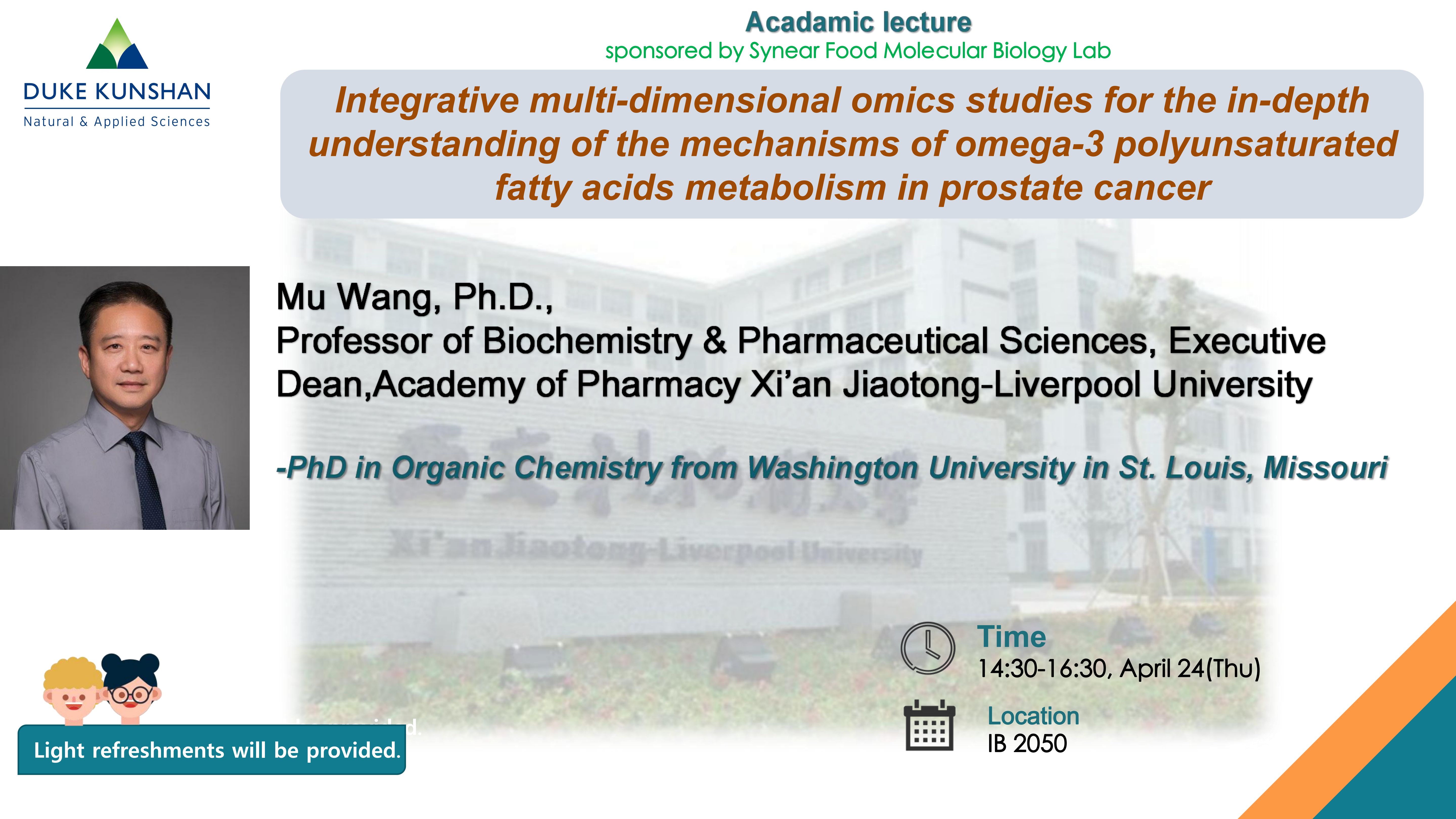Date and Time (China standard time): Thursday, April 24, 2:30 – 4:30 pm
Location: IB 2050

Title: Integrative multi-dimensional omics studies for the in-depth understanding of the mechanisms of omega-3 polyunsaturated fatty acids metabolism in prostate cancer
Speaker:
Dr. Mu Wang

Professor of Biochemistry & Pharmaceutical Sciences
Executive Dean
Academy of Pharmacy
Xi’an Jiaotong-Liverpool University
Bio:
Prof. Wang is a Professor of Biochemistry and Pharmaceutical Sciences at Xi’an Jiaotong Liverpool University (XJTLU), a joint higher education institute between one of the top universities in China and University of Liverpool of UK located in one of the most modernized cities in China near Shanghai. He was also the founding Executive Dean of Academy of Pharmacy of XJTLU. He earned his PhD in Organic Chemistry from Washington University in St. Louis, Missouri, USA, and was an NIH/NRSA postdoctoral fellow studying mechanisms of DNA repair in mammalian system. He joined the faculty of Indiana University School of Medicine in 2001 as the Scientific Director of a newly established Proteomics Core and became a tenured Associate Professor in 2010. He joined the faculty of XJTLU as the Head of Department of Biological Sciences in 2018. In 2004, he spearheaded a biotech CRO, Monarch Life Sciences, and served as its VP of Research & Development until 2010. He also served as the Director of Protein Analysis and Research Center from 2001 to 2016 at Indiana University School of Medicine. His research centers around biomarkers and drug target discovery and deciphering the protein interaction networks in complex human diseases (e.g., metabolic disease and cancer) with the use of high-throughput omics technologies such as 2DE- and LC/MS-based platforms. Additionally, he also has expertise in DNA repair and macro-molecular interaction studies using surface plasmon resonance (SPR). He has been collaborating actively with many investigators both across the United States and internationally to advance knowledge related to human health. He has supervised more than 40 graduate students, postdoctoral fellows, and research associates. He is also a Co-Principal Investigator on the US National Cancer Institute’s Clinical Proteomics Technologies Assessment for Cancer (CPTAC-I) Program. He received a number of awards including a HUPO Young Investigator’s Award in 2004. He has published more than 100 peer-reviewed articles in DNA repair, biochemistry, and proteomics related journals and bookchapters with a Google Scholar H-index of 47 and served as an expert reviewer for many journals as well as NIH and the US Department of Defense grant applications.
